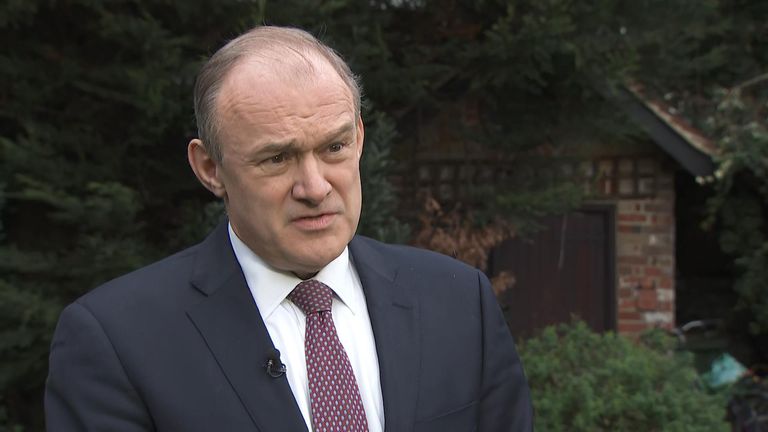Sir Tony Blair was warned the Horizon IT system could be flawed before it was rolled out across the Post Office, a document shows.
A letter sent to the then-Labour prime minister on 9 December 1998 by a Downing Street special adviser said pressing ahead with the project was a risk because of spiralling costs and concerns it was “possibly unreliable”.
There was no indication at this stage that the software, developed by Fujitsu, could cause the financial discrepancies that led to hundreds of sub-postmasters being wrongfully convicted of theft and fraud.
The letter, from special adviser Geoff Mulgan, asked for a decision on whether to proceed with the project, which was initiated under the Conservative government of Sir John Major but was running years behind schedule.
Mr Mulgan explained the decision was “not clear cut” because while cancelling the deal could be destabilising, and lead to job losses, “Horizon now looks increasingly flawed”.
He said concerns lay with the Benefit Payment Card, which is “both overengineered – and very expensive – and likely soon to be obsolete”.
Mr Mulgan also described the system as “unreliable”.
He warned that while short-term considerations point towards making a deal, “this will in the long run prove unsatisfactory, leaving the Post Office and government with a hugely expensive, inflexible, inappropriate and possibly unreliable system”.
Sir Tony jotted a handwritten note on the letter that asked for a “clear view” on Horizon’s reliability.
A spokesperson for the former prime minister said he “took the issue very seriously” and “subsequently received these assurances”.
The letter was published on Thursday by the inquiry into the Post Office scandal.
The inquiry resumed this week amid renewed attention on the huge miscarriage of justice following the airing Mr Bates Vs The Post Office, which documented the postmasters’ 20-year fight for the truth.
Evidence to the probe shows the next day, on 10 December 1998, then business secretary Peter Mandelson said he believed the “only sensible choice” was to proceed with Horizon.
Lord Mandelson said in a letter that “the basic development work has been thoroughly evaluated by independent experts who have pronounced it viable, robust and of a design which should accommodate future technological developments”.
He also warned that cancelling the contract would cause “political fallout” from Post Office closures and damage relations with Fujitsu, which he described as a “major investor in the UK over the past decade”.
Click to subscribe to the Sky News Daily wherever you get your podcasts
At the time, the system was being developed as a way of paying welfare benefits through Post Office counters using a swipe card, which Lord Mandelson said was important to Labour’s “social banking policies”.
That element of the project was ultimately dropped, with Horizon rolled out in 1999 to manage transactions, accounts and stocktaking.
A spokesperson for Sir Tony said: “As the documents show, and make completely clear, Mr Blair took the issue very seriously. His response to the Mulgan note, and in other interactions, was to raise the issue of the viability and reliability of the end project as this was his overarching concern. He subsequently received these reassurances.
“It is now clear that the Horizon product was seriously flawed, leading to tragic and completely unacceptable consequences, and he has deep sympathy with all those affected.”
A spokesperson for Lord Mandeslon said the former minister “did not give assurances about Horizon, he gave to the prime minister the conclusions reached by the independent experts panel that the Horizon system was technically viable and robust”.
“He quoted exactly from the experts’ report published in July 1998,” they said.
Read More:
Civil servants accuse ex-ministers of ‘cowardly’ blame game over Post Office scandal
Who are the key figures in Post Office IT scandal?
Politicians from all the main parties have come under pressure over their handling of the Post Office scandal, which saw hundreds of sub-postmasters and sub-postmistresses wrongfully convicted between 1999 and 2015.
Lib Dem leader Sir Ed Davey, who was Post Office minister between 2010 and 2012, has accused the Post Office of lying to him and other politicians “on an industrial scale” over the faulty software.
Some of the wrongfully convicted postmasters were sent to jail, while many were left bankrupt and some even committed suicide.
Amid pressure to act, Rishi Sunak announced on Wednesday that a new law would be introduced to exonerate and compensate those caught up in the Horizon scandal and that those who were part of the group litigation order against the Post Office would also be eligible for an upfront payment of £75,000.
But there are calls for the government to go further and take action against those at the top of the Post Office and Fujitsu.
Alex Chalk, the justice secretary, has suggested the government will pursue the Japanese technology firm for the £1bn set aside to compensate victims if it is found to be liable in the inquiry.
And Kevin Hollinrake, the Post Office minister, said on Friday it would be the “ultimate deterrent” to prosecute and lock up those responsible.
Mr Hollinrake argued that people found to be to blame for the scandal “must be held to account” after the official inquiry reaches a verdict.
Asked if he wants to see some people from the Post Office jailed, he said: “I absolutely do, we should’ve done it in the banking scandals as well.”


